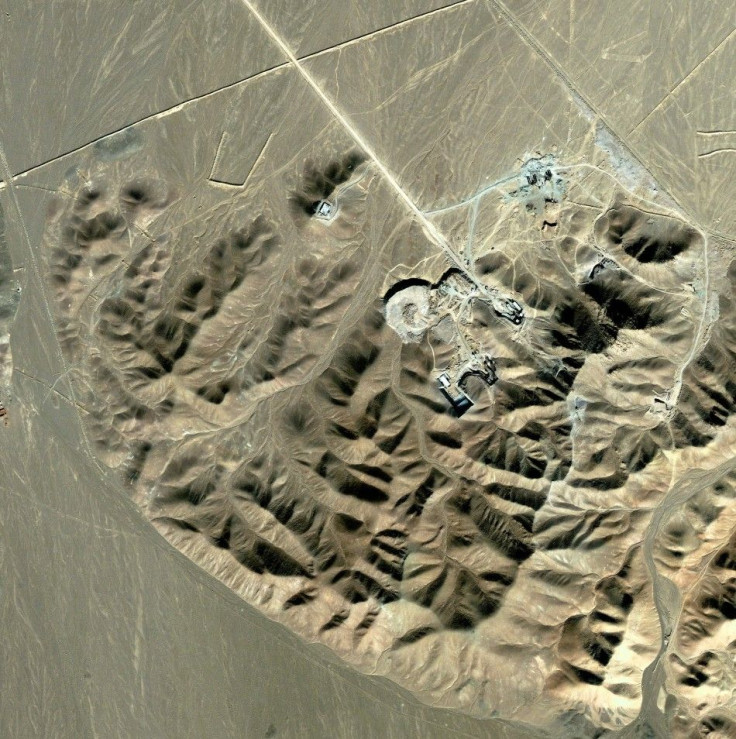Iran Urges 'Honesty,' No Preconditions Ahead Of Nuclear Talks

Iran on Monday urged honesty at talks this week with world powers over the country's nuclear program, warning that setting conditions before discussions begin would be counterproductive.
Setting conditions before the meeting means drawing conclusions, which is completely meaningless and none of the parties will accept conditions set before the talks, Foreign Minister Ali Akbar Salehi was quoted as saying by the news service for Iran's parliament.
The United States, along with the four other members of the United Nations Security Council (Britain, China, France and Russia) plus Germany, hope to be able to strike a deal with Iran over its suspected covert efforts to develop the ability to build an atomic bomb.
Iran's government says the activities are entirely peaceful; it has so far refused to suspend its program of enriching uranium, which is a crucial step toward building a weapon.
The crucial talks involving the so-called P-5 Plus 1 group and Iran are scheduled for Saturday in Istanbul. Host country Turkey is serving as a liaison in the discussions.
We hope the P5 Plus 1 will come to the negotiating table with honesty, and we also will make an honest effort so that both sides reach a win-win conclusion, Salehi said.
The U.S. and Israeli governments have threatened to launch military strikes against Iran if diplomacy over the dispute fails.
The United States considers getting Iran to suspend uranium enrichment and close a nuclear facility built under a mountain near the Islamic republic's holy city of Qom are priorities for this weekend's talks.
Reacting to Western news reports over the weekend as to that position, Salehi said Monday: These issues have been raised by the media and we cannot base our judgment on those concerns reflected by media coverage.
He said Iran's negotiating team in Istanbul will ignore those reports and defend its position. We have our opinions and the P-5 Plus 1 has theirs, but we have to find common areas.
A spokesman for the six-member group, Michael Mann, was quoted by Reuters as saying: We hope that this first round will produce a conducive environment for concrete progress.
Salehi's stance was firmer than a modest compromise that came earlier Monday from Fereydoon Abbasi, head of the Iranian Atomic Energy Organization. The official IRNA news agency reported that Abbasi had indicated Iran was prepared to enrich uranium to 20 percent purity just to meet its own needs for a research reactor but not beyond that point.
Separately, the Associated Press quoted Abbasi as saying Iran could stop producing the more-refined fuel once it had stockpiled enough of it, continuing its enrichment at a lower level to generate electricity.
The seemingly mixed messages from Abbasi came after he was quoted by Iran's student news service on Sunday as rejecting any demand that uranium enrichment be cut to 20 percent and the site at Fordow be closed.
Earlier Sunday, Israel had signaled it would accept the 20 percent enrichment standard, though Defense Minister Ehud Barak stressed to CNN that this would be only a first step.
We told our American friends as well as the Europeans that we would have expected the pressure for successful negotiations to be clear -- namely that the P-5 Plus 1 will demand clearly, no more enrichment to 20 percent [and] all the already enriched 20 percent material out of the country, Barak said. But if the P-5 Plus 1 will settle for a much lower threshold, like just stop enriching to 20 percent, it means that basically the Iranians, at a very cheap cost, bought their way into continuing their military program. Slightly slower but without sanctions. That will be a total change of direction for the worse.
Iran had earlier voiced concerns about holding talks in Turkey, whose opposition to Iranian ally President Bashar al-Assad in Syria has angered the Islamic republic. Those concerns appear to have abated.
© Copyright IBTimes 2024. All rights reserved.





















